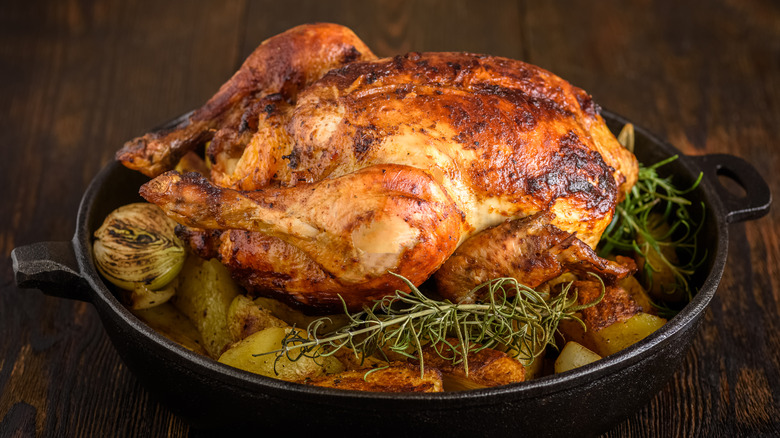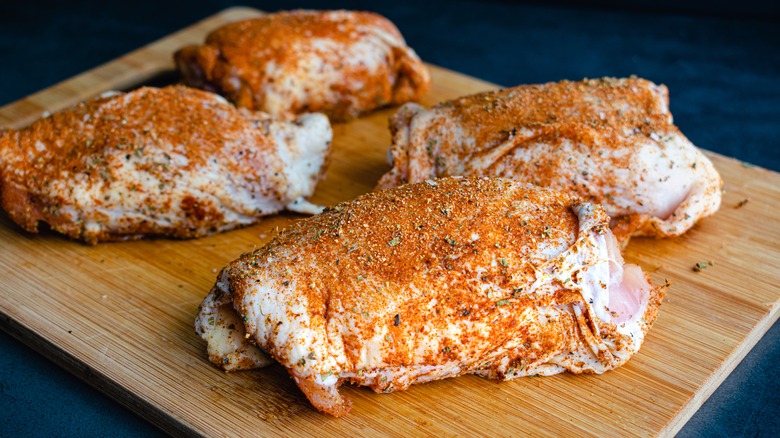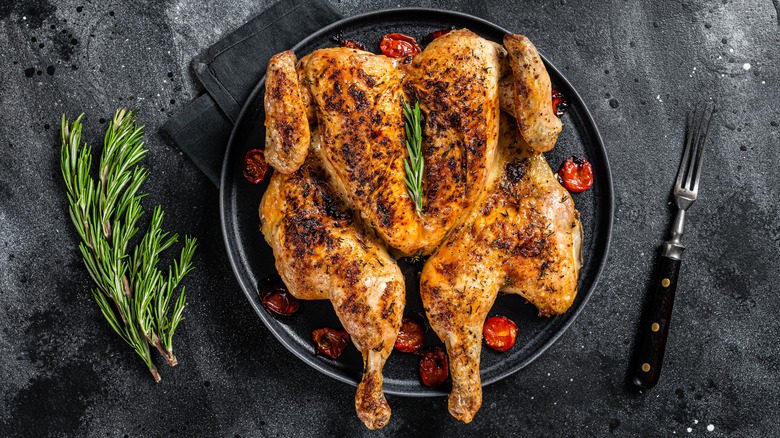For The Crispiest Oven Roasted Chicken, Skip The Brine
Among the pantheon of home-cooked dishes, roast chicken holds a place of honor — and for good reason. Dubbed the simplest dish to cook by Ina Garten, this humble favorite can easily satisfy a small gathering, especially when served alongside a couple of sides, such as your favorite roasted veggies. What's more, it also provides convenient leftovers that you can toss into a pasta, or use to create a hearty lunchtime salad.
While some guides recommend brining your chicken to maximize the moisture of its meat, this approach can result in soggy, limp, and chewy skin that is less than appetizing. On the other hand, using a dry rub and leaving your chicken uncovered in the fridge overnight can yield a roast chicken with crispy, delectable skin, much like what you'd find in a restaurant. All you need is a good seasoning blend, a bit of patience, and a hot oven.
Dry skin makes crispy skin
The science behind achieving crispy skin when roasting a chicken lies in controlling its surface moisture. In simple terms, the drier the skin before roasting, the crisper the skin will be after cooking. To ensure this outcome, season the chicken with a dry seasoning mix rather than a brine, as the water content in the brine will make the skin too wet to crisp up in the oven.
After seasoning, place the chicken on a plate and leave it uncovered in the fridge overnight. The dry, cold air circulating in the fridge will help to dry out the skin, optimizing your chances for achieving maximum crispiness. Additionally, start with a very hot oven before reducing the temperature. A high initial heat cooks the skin's surface quickly, rendering the fat and making the skin crispy, before the meat beneath cooks at a lower temperature. Lastly, refrain from stuffing the chicken, and cook the dressing separately to allow hot air to circulate through the chicken, thereby shortening the cooking time.
Other tips for roasting your chicken
There are a few additional tips you can follow to make roasting chickens easier and more flavorful. For instance, if you're pressed for time and need to roast the bird quickly, consider spatchcocking it. Use kitchen shears to cut along the opposite side of the spine and set it aside for later use, such as making chicken stock. Then press your palms against the breastbone to flatten the chicken. Spatchcocking allows the chicken to cook faster and more evenly.
Another tip to remember is that, like other roasted and seared meats, chicken should also be rested before serving. Allowing the bird to rest helps redistribute the internal juices evenly, preventing the meat from drying out due to premature carving.
Lastly, a well-roasted chicken deserves a complementary sauce. You can certainly make gravy using the drippings at the bottom of the pan, or you could pair your chicken with a spicy and tangy chimichurri sauce.



